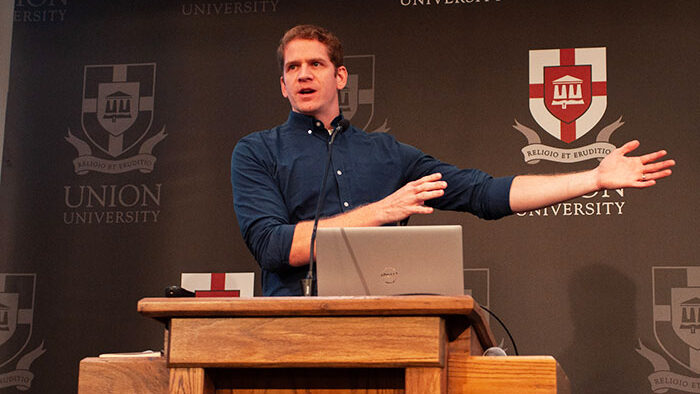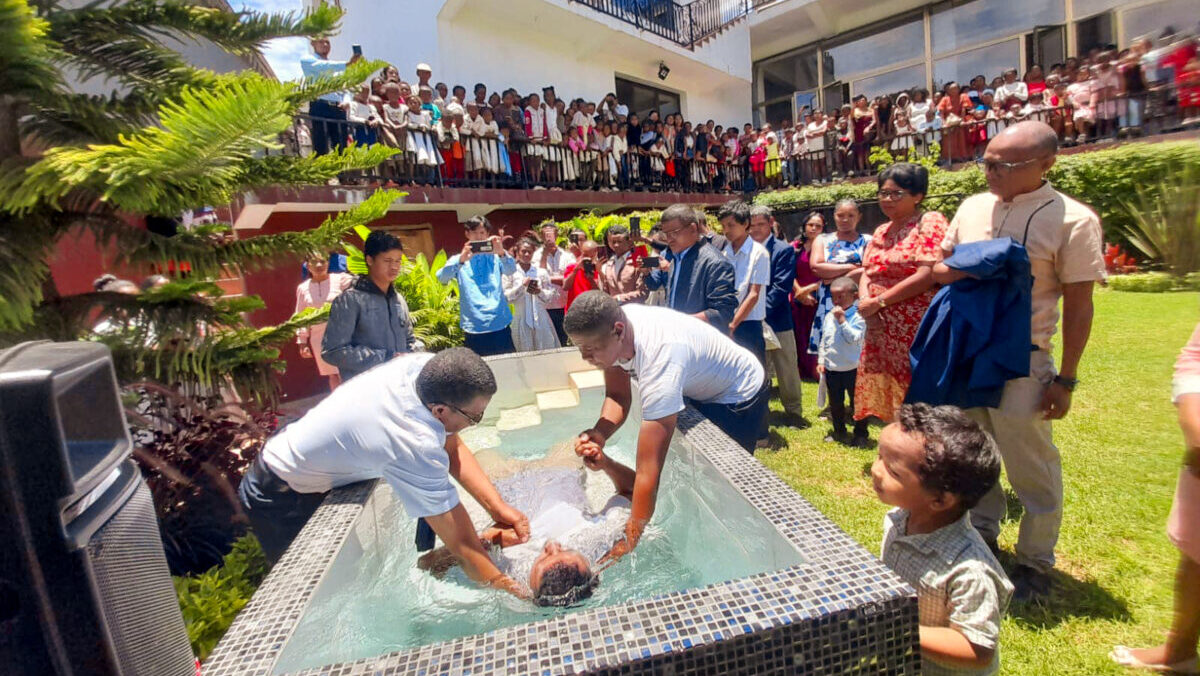More than 250 youth, parents and church youth leaders recently attended the EQUIP Youth Apologetics Conference at Union University’s Carl Grant Events Center.
Hosted by Union University’s School of Theology and Missions in partnership with the Tennessee Baptist Mission Board, the conference sought to equip middle schoolers, high schoolers and recent high school graduates to properly wrestle with doubt. Four talks throughout the day sought to answer students’ questions about Christianity.
RELATED: Check out more stories on students and faith here.
“If you are going to be equipped to answer other people’s questions with both patience and humility, and also with deep, persuasive answers, you have to wrestle with those questions yourself and discover what you believe and why you believe it,” said Gregory Poore, associate professor of philosophy, apologetics and ethics at Union.
“Apologetics is not about winning arguments. It’s about winning people and loving people. You have to understand what are their needs, their questions and their doubts, and let that set the agenda.”
Jay Barbier, who leads youth ministry for the Tennessee Baptist Mission Board, presented attendees with a healthy model for dealing with doubt. Believers should communicate doubts and go to the right places to answer them, or they may be driven toward deconstruction, he said.
“If we don’t answer them ourselves, we’re going to let them fester, there’s going to be bitterness, and it can lead to some major problems,” Barbier said. “It frustrates me to no end when I hear people talk, even in the church, saying, ‘We can’t ask God why.’”
Tough questions
Jeremy Blaschke, associate professor of biology at Union, addressed recent attempts to justify human homosexual and transgender behaviors through appeals to the natural world. Blaschke argued that deriving morality from the behavior of animals was an example of the “naturalistic fallacy” and emphasized that morality can only be derived from the character and commands of God.
“When you ask, ‘Why is homosexuality immoral?’ or ‘Why shouldn’t you change your sex?’ whatever answer we get to can’t come from nature; it has to come from the moral character of God,” Blaschke said.
Blaschke also emphasized the importance of compassion when discussing the social dimensions of gender and transgenderism.
Matthew Albanese, assistant professor of biblical studies, presented the students with an introduction to the textual history of the Bible and the preservation of the Scriptures through the ages. Albanese concluded that the evidence of the whole manuscript tradition illustrates how the Bible was transmitted reliably.
‘Real hunger’ for answers
Poore presented on the problem of evil, both responding to the philosophical debate and advising compassion and patience when dealing with those who are personally wrestling with the realities of evil and suffering.
Two question-and-answer sessions were held between talks in which the speakers addressed anonymous questions from attendees.
“I am once again impressed and blown away by the depth and substance of the questions that even middle schoolers bring to this conference,” Poore said. “The questions show there’s a real hunger and need for a forum where young people can honestly voice and wrestle with their concerns and their doubts. There is a need to model for youth how we should go about trying to face our own doubts and the doubts and questions of others.”
EDITOR’S NOTE — This story was written by Samuel Stettheimer and originally published by Baptist and Reflector.








